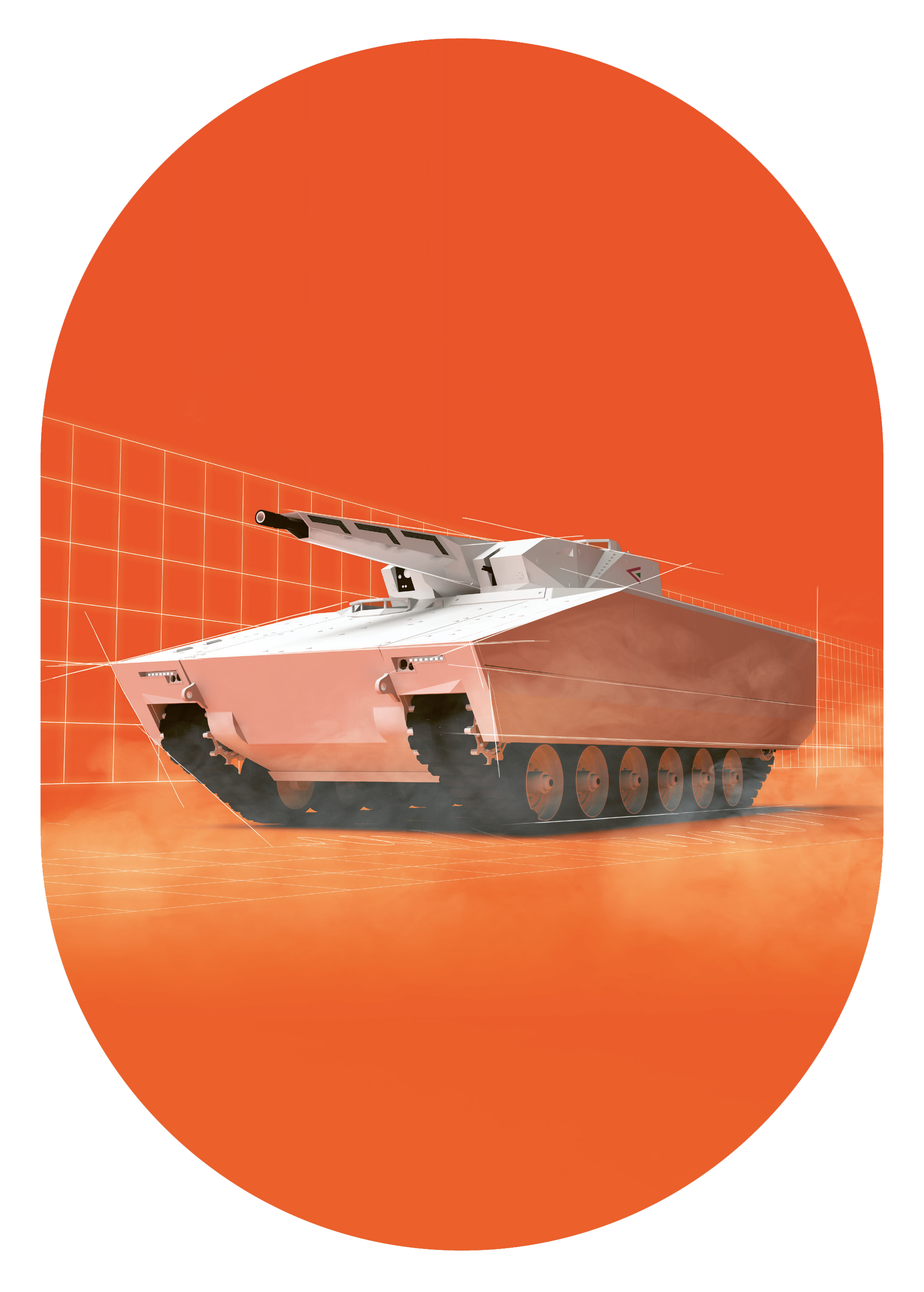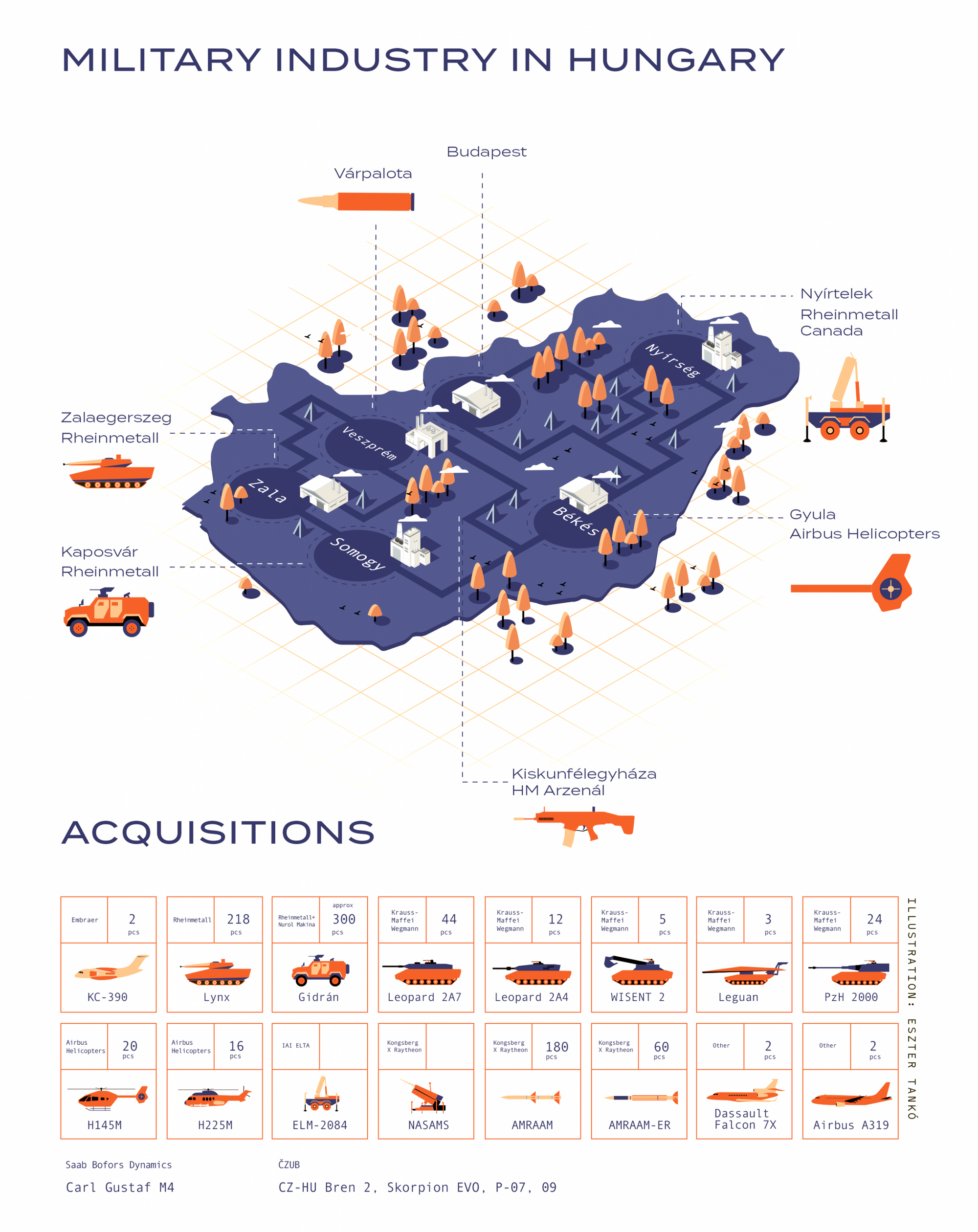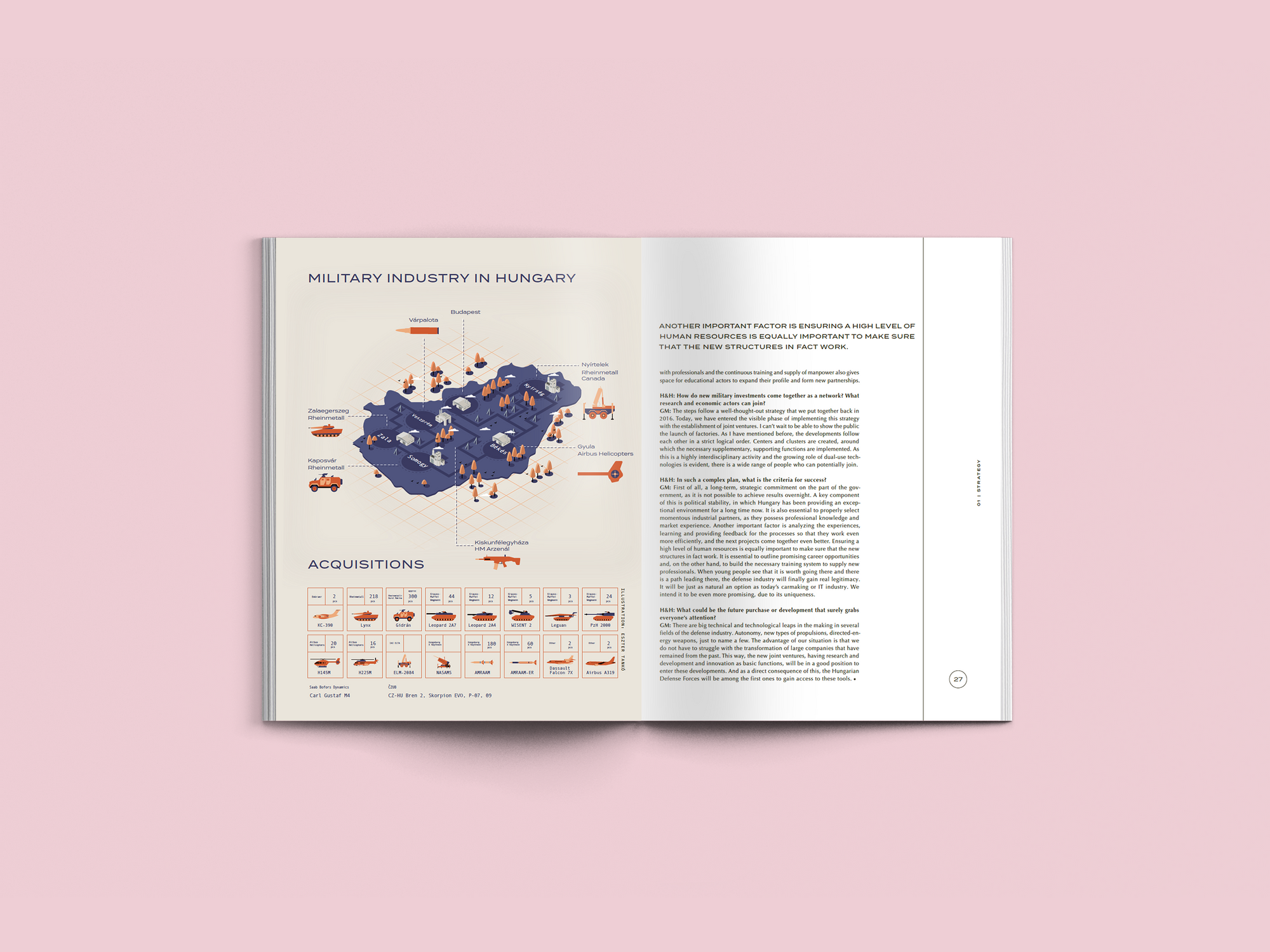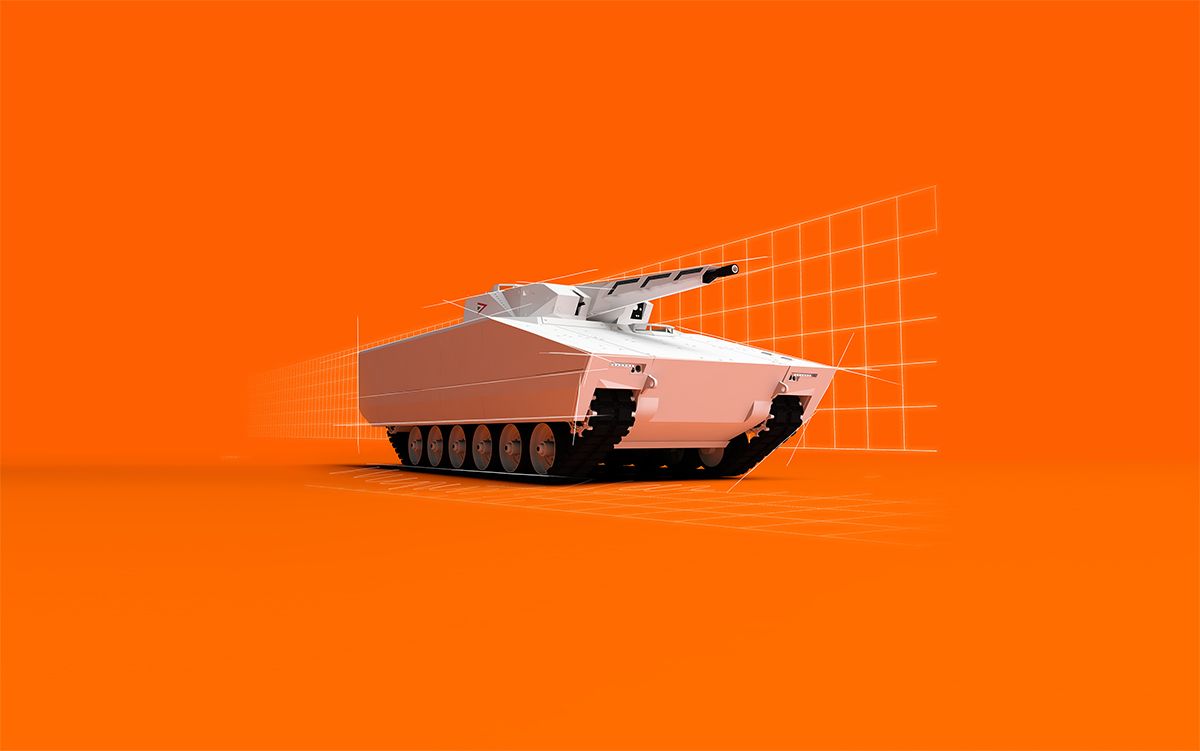In Hungary, the radically growing unpredictability of the international environment provided closure to a question that had been open for thirty years. At the same time, the long-procrastinated Hungarian military reform brought about not only excessive spending, but also a complex development concept thought out from a business point of view. The task was to redesign the technical and military capabilities of the Hungarian Defense Forces in order to develop a new economic sector, which is capable of boosting high-tech industries and encourages a civilian innovation ecosystem as well as research and development, i.e. to implement force development that also pays off commercially in the short run. This interview was published in print in Hype&Hyper 2021/1.

H&H: What determines the 21st-century geopolitical coordinate system in which the concept of long-term Hungarian military force development is born?
GM: A perceptibly, spectacularly and rapidly growing security tension in the world. And simultaneously, there is an increasing feeling of being threatened in people across the continent. I see many and diverse reasons for this process, but the fact is that as responsible politicians, we cannot pretend that this challenge does not exist.
In any case, while on the big stage of politics, there is a “war of religion” going on, overwhelmed by ideologies and manipulations, in the community of defense and security policy, this debate takes place within a much more rational framework.
The threat exists, and it has been growing steadily in recent years. It is our responsibility to provide appropriate and credible answers to these problems in a timely manner. If we fail to do so, we risk the possibility of the appearance of violent solutions.
What role must the Hungarian Defense Forces of the future play in this environment?
Europe has a long history with several examples of deploying multinational armies. In this regard, unfortunately, as with many other historical facts, there are superficial and bad stereotypes ingrained in us. NATO is not a crusade organization, so neither the participating soldiers nor the armies march or fight in distant lands as per some kind of abstract religious war. And NATO is not the Warsaw Pact, soldiers of which were mostly used by a tyrannical ideology to intimidate people, maintain order and break free speech and free will within the alliance.
NATO is an alliance formed to defend each other against both direct and indirect threats that emerge in the world. From this, it is clear that the task of the Hungarian Defense Forces is primarily to ensure the protection of Hungary, plus to cooperate in the defense of our ally countries.
What were the fundamentals of the force development concept and the related military industry development concept in terms of purchasing, manufacturing and development?
Based on the aspects mentioned above, it is clear that the obvious goal of force development is to guarantee the security of Hungary and the Hungarian public in all possible circumstances. This goal is also perfectly in line with our NATO membership, since as a border country, we also contribute to the security of allied countries. The development of the military industry is one of the most important tools in achieving this goal. At today’s prices and cost levels, this goal would have been economically unachievable for us without establishing our own military industry.
What do you expect from the comprehensive development plan, and how important will these current or coming investments be in economic and industrial terms in the coming decades? If it can be expressed as a percentage, what is their amount of contribution to the GDP in the near future?
By the end of the decade, the defense industry must make a significant contribution to the performance and diversification of the domestic economy, to the increase of the proportion of activities that provide high added value and to the improvement of innovation indicators. It must become a key player in the region with a turnover of HUF 100 billion.
In every country, military force development is generally seen by voters as spent money. Could it specifically mean potential income in the budget in the long run?
If we build in adherence to the aforementioned, or we could say market-related aspects, and I’m convinced that we did, then yes, by all means. There are special cases where a different approach is needed to maintain the forces sovereignly, but we do not aim to build capacities that will require significant state funding in the long run.

How important can Hungary become through these developments in the global and European military industry? Concerning the collective European force development, the Prime Minister of Hungary stated a few years ago that it is worth participating in it, because we can become a supplier partner beside bigger countries. What is the possibility and potential benefit of this?
Our ventures established last year together with leading international industry players, meaning a helicopter parts factory in Gyula and combat vehicle factories in Zalaegerszeg and Kaposvár, among others, prove that it is possible to become partners and enter the international circulation. How important that is? I think it speaks for itself that one of these facilities will be the sole manufacturing center for critical precision parts, while the other will make up for the lack of strategic capacity in Europe. But I could also mention the research and development functions that are present everywhere.
As for the possibilities, it is always important to highlight that these projects were launched not only because of the intentions of the Hungarian government, but also because our partners that are experienced in the market see opportunity in us. I believe that these efforts can make a significant contribution to breaking down certain regional-historical economic barriers by introducing higher value-added, more sophisticated industrial activity.
What opportunities does the emergence of a new economic sector of such weight create for the innovation ecosystem in Hungary?
Because innovation is key in this field, being the foundation of the most profitable area of product development, it will definitely open up significant prospects. And so, this year, we will establish a new organization, the Defense Innovation Research Institute (VIKI), to coordinate and support potential actors, startups, universities and workshops.
What does Zrínyi 2026 mean for higher education and professional training, or for a Hungarian university student in the sense that hundreds or thousands of jobs will be created with the establishment of factories and research centers?
Career opportunities will be created in Hungary in an extremely exciting field, which previously could only be accessed by working abroad, and because of the nature of these things, sometimes not even by that. Filling the defense industry with professionals and the continuous training and supply of manpower also gives space for educational actors to expand their profile and form new partnerships.
How do new military investments come together as a network? What research and economic actors can join?
The steps follow a well-thought-out strategy that we put together back in 2016. Today, we have entered the visible phase of implementing this strategy with the establishment of joint ventures. I can’t wait to be able to show the public the launch of factories. As I have mentioned before, the developments follow each other in a strict logical order. Centers and clusters are created, around which the necessary supplementary, supporting functions are implemented. As this is a highly interdisciplinary activity and the growing role of dual-use technologies is evident, there is a wide range of people who can potentially join.
In such a complex plan, what is the criteria for success?
First of all, a long-term, strategic commitment on the part of the government, as it is not possible to achieve results overnight. A key component of this is political stability, in which Hungary has been providing an exceptional environment for a long time now. It is also essential to properly select momentous industrial partners, as they possess professional knowledge and market experience. Another important factor is analyzing the experiences, learning and providing feedback for the processes so that they work even more efficiently, and the next projects come together even better. Ensuring a high level of human resources is equally important to make sure that the new structures in fact work. It is essential to outline promising career opportunities and, on the other hand, to build the necessary training system to supply new professionals.
When young people see that it is worth going there and there is a path leading there, the defense industry will finally gain real legitimacy. It will be just as natural an option as today’s carmaking or IT industry. We intend it to be even more promising, due to its uniqueness.
What could be the future purchase or development that surely grabs everyone’s attention?
There are big technical and technological leaps in the making in several fields of the defense industry. Autonomy, new types of propulsions, directed-energy weapons, just to name a few. The advantage of our situation is that we do not have to struggle with the transformation of large companies that have remained from the past. This way, the new joint ventures, having research and development and innovation as basic functions, will be in a good position to enter these developments. And as a direct consequence of this, the Hungarian Defense Forces will be among the first ones to gain access to these tools.

Prefer to read it in print? Order the first issue of Hype&Hyper magazine from our online Store!

Very popular article! 10 designers have already read it! | Frontira x HYPE

Stunning buildings of star architects in Eastern Europe | TOP 5










